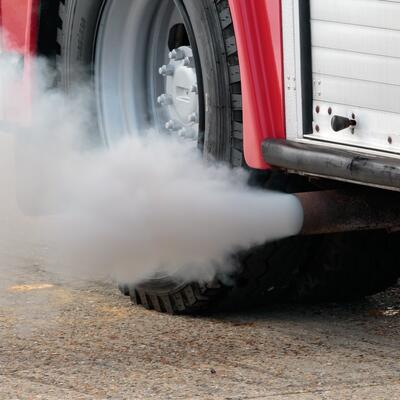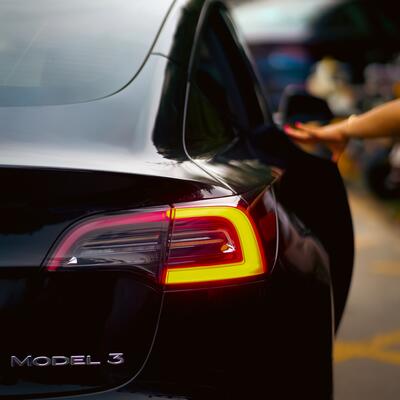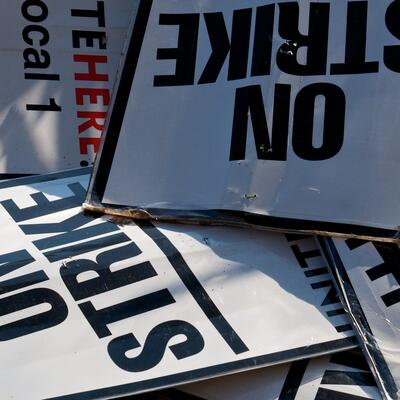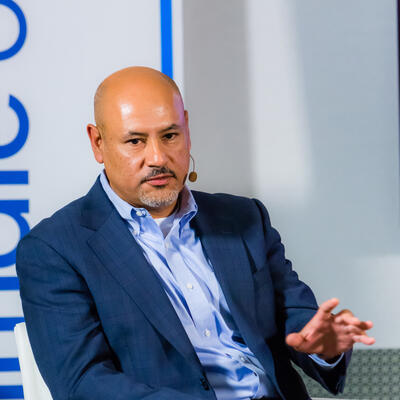
Exposed: Dieselgate's Impact on the Auto Industry
Guests
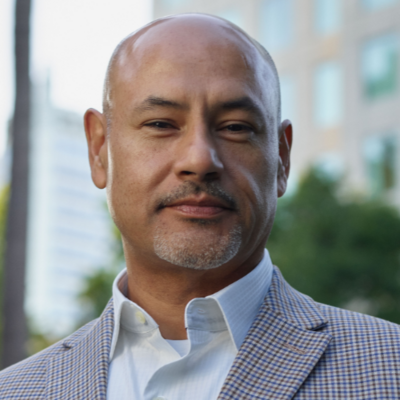
Alberto Ayala, PhD, MSE

Edward Niedermeyer
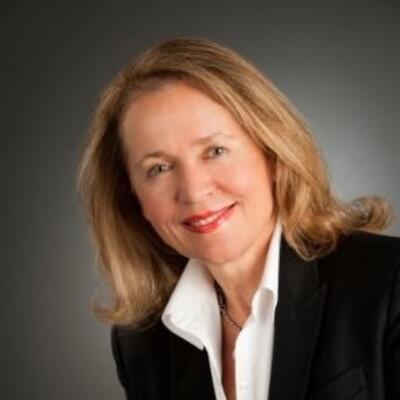
Margo T. Oge
Summary
Volkswagen’s brazen cheating on air pollution rules rocked an industry with a history of skulduggery. The scandal has now cost the company $30 billion plus jail time for one. Furthering chaos in the auto industry is a Trump administration looking to roll back emissions standards while California and 12 additional states, making up 36% of the auto market, threaten to maintain theirs.
This program was recorded live at The Commonwealth Club in San Francisco on March 27, 2018
Full Transcript
Announcer: This is Climate One, changing the conversation about energy, economy and the environment.
Volkswagen’s brazen cheating on air pollution rules rocked an auto industry with a history of shifty business.
Margaret Oge: Almost every company has cheated. What was different here was the level of cheating, and the fact that they kept on lying.
Announcer: Dieselgate has now cost the company $30 billion plus jail time for one executive. But the scandal has had its silver linings.
Edward Niedermeyer: One of the outcomes of Dieselgate is that the penalties include sort of investments in electric charging infrastructure.
Announcer: Will the newly-energized push toward electric cars expand the market and drive down prices?
Alberto Ayala: Imagine, you know, Super Bowl commercials all over the place with zero emission vehicle instead of pickups. Imagine the response consumers would have.
Announcer: Dieselgate and the future of the auto industry. Up next on Climate One.
Announcer: How will Volkswagen’s Dieselgate scandal impact the rest of the auto industry? Welcome to Climate One – changing the conversation about energy, economy and environment. Climate One conversations – with oil companies and environmentalists, Republicans and Democrats – are recorded before a live audience, and hosted by Greg Dalton.
I’m Devon Strolovitch. In 2017, Volkswagen pleaded guilty to criminal charges of installing cheating software on nearly 500,000 diesel cars in the United States and 9 million worldwide. The cheating software hid the fact that the VW’s so-called clean diesels actually broke pollution laws. Soot from diesel engines is linked to cancer and other diseases. Six VW executives were indicted on criminal charges and the company agreed to pay more than $4 billion in penalties. It also will pay $15 billion to defrauded drivers. Independent investigations found that many other carmakers including Volvo, Renault, Jeep, Hyundai and Fiat also exceeded pollution limits. VW subsequently announced it will invest $40 billion in robotic and electric cars that emit no tailpipe emissions. This conversation about the scandal and the future of personal mobility is generously sponsored by the ClimateWorks Foundation.
To talk about Dieselgate and its impact, Greg Dalton welcomes three guests. Alberto Ayala was a key California Air Regulator who investigated the VW cheating scandal. He’s now the top air pollution official in Sacramento, California. Edward Niedermeyer is an auto industry analyst and host of the Autonocast podcast. He’s a contributor to Bloomberg View, and has written extensively about Tesla Motors. And Margo Oge is Former Director of the Office of Transportation and Air Quality at the U.S. EPA. She's now an advisor to the VW board.
Here’s our conversation about the impact of Dieselgate and the future of the auto industry..
Greg Dalton: So Alberto Ayala, let’s begin with you. It’s 2012, California has declared fighting climate change, a major priority. Diesels were thought to be part of the solution better than gasoline, and in many respects, and you started to test cars as a California air regulator. And then things started to look a little fishy, pick up the story there.
Alberto Ayala: That is correct. At the time California was well underway to set up and build a climate agenda that obviously included the biggest source of emissions greenhouse gases and otherwise. And that is a transportation sector, and we identified and realized that because diesels were so efficient they were going to be a low carbon solution for us. But diesels had never been very popular in California or in the U.S. for that matter. And as we began to promote and expect the fraction of diesel cars and the fleet to grow, we quickly realized that we didn't really understand the technology we had not tested it. We have not researched it to the level that we had other technologies like gasoline cars for example. And that was really the beginning of our interest in, you know, bringing the cars in and as I often say just kick the tires. Just trying to get our feet wet trying to understand the technology the way it performs what have you. And just by the mere fact that we started testing as many different types of cars as we could get our hands on, it was that’s when it became clear to us that some cars were not performing the way that we expected them. And that's when things got as you said a little fishy.
Greg Dalton: And then eventually realized that they were kinda gaming the system that the car somehow knew they were on a treadmill. There’s all sorts of things ways the companies did that. Then VW agreed to recall the cars, to fix them. Tell us what happened then.
Alberto Ayala: Well so, you just compressed about three years’ worth of work into a real quick event.
Greg Dalton: Welcome to radio.
Alberto Ayala: It actually took a long time for us to realize that there was cheating going on and I want to make that clear. I mean you said 2012, the agencies did not announce the violation until 2015. And the reason for that is because we spent all that time doing a lot of testing going back and forth with the company. So, you know, it wasn't a trivial issue but to your point at one point in time and in late 2014, the company for other reasons had already planned a recall. And before they can do that they have to get approval from the agencies. And they sold it to us as an opportunity to fix the more recent problem and that makes sense to us. We figured let’s be efficient about it they’re gonna be bringing the cars to fix this completely unrelated problem that will present the opportunity. And it makes sense to us at the time and that's why we approved it.
Greg Dalton: And so there was a recall for VW cars. They come in and what really happens, rather than fixing the problem. What do they really do?
Alberto Ayala: So again if you fast-forward and we look back now we understand what actually happened. At the time we gave the company the okay with the understanding that once they performed the recall and implement it, the fixes that they needed to. We said that's fine but bring us a car to test it again. And that's really when it became apparent that the so-called fix wasn't much of anything other than just more convolution and just, you know, more issues with the cars.
Greg Dalton: So then what ultimately convinces the company to say which is pretty rare, okay we did it you got us.
Alberto Ayala: Well I like to, let me take a step back. I mean California, obviously we've had an opportunity to reflect back in terms of, you know, all the issues have really led us down this path. And I do say with conviction that California has a pretty unique program in place for emissions regulations and compliance. And it’s really that program that allow us to get to the final answer. And the best way to characterize it is after years of work with the company going back and forth, we really put them in a corner where they had no other answer, which was a lie now we know other than just to admit that it was a defeat device. So I do think that it was our perseverance and, you know, there was many of us involve in this process. I want to make that clear. But it really was a point where they just had no other place to turn than to admit the cheating.
Greg Dalton: Margo Oge, you spent 20 some years at the top office in the U.S. EPA investigating, you know, keeping an eye on the industry. How do you look at this scandal compared to other many scandals in the auto industry how does this framed?
Margo Oge: First of all, let me just make a statement because I think it’s very important. As good as Alberto’s former agency car base and my former agency the Environmental Protection Agency, we really did not catch VW. VW cars were introduced back to the U.S. in 2007. The last time we saw a VW car was in the mid-80s. So they came to the U.S. in 2007 along with BMW and Mercedes. At EPA we audit about 15% of the cars and I cannot tell you the formula. There is a formula that we use. I mean VW was selling 50,000 cars, we didn’t test it. So it went from 2007 all the way to 2014, 2015. And I have to say the first credit on this goes to the International Council on Clean Transportation. They took it to Alberto and they took it to EPA. I was gone by then, I left EPA in 2012. So it was because of the ICCT that this case came up. Probably eventually the agencies both at the state level and federal would have picked it up but that has been going on for many years. Now let me say this. My 18 years at the Environmental Protection Agency overseeing the Office of Transportation and Air Quality I was not surprised. I mean everybody almost every company has cheated. From Toyota to GM to Honda. What was different here is the level of cheating. I mean 40% above the standards. And the fact as Alberto said they kept on lying. Let me give you an example. In 2009 under President Clinton, we caught all, all diesel truck manufacturers cheating for a decade. They were improving fuel efficiency and they were cheating on NOx.
Greg Dalton: Nitrous oxide.
Margo Oge: Nitrogen oxide. The first company that we caught because we tested the engine, Cummins engine in our lab. I brought them into our office and they said, well, you know what we really could not read the regulations they are maybe vague. One company after the other all seven of them came in. Within six months the Department of Justice had to deal with them. They polluted one million metric tons of NOx. By the way, we never recover more than 10% of that. The total penalty for this companies all seven of them $1 billion. Why? Because they had made it early on they didn't keep us hanging, we’re not cheating we haven’t done anything, you know, keep on lying. So every company for the most part cheats. And in the U.S. the good news is that we do have strong federal programs in California it’s very strong. So between California and EPA, we enforce those laws. In Europe they have never had an enforcement case against the car company until the Dieselgate broke.
Greg Dalton: Because the regulators are pretty cozy with the companies?
Margo Oge: Because this are national companies. So basically what happened Mercedes for example, I'm not picking on Mercedes, could be any of these companies, goes to Portugal and they asked a private company to certify their cars. And they pay them. They don’t pay EPA, they don’t pay California in the U.S. So the company in Portugal gives them a certificate. Then Mercedes takes it and can introduce their cars in any country in Europe. No penalties, no enforcement until now after the Dieselgate that things have changed.
Greg Dalton: After the scandal broke Philip Forbes became a moderator of a form on Facebook with 4,000 owners. Here is he’s talking about his ownership of a VW.
[Start Clip]
Philip Forbes: I own a 2013 Volkswagen Passat TDI six-speed manual. I got a job that I knew was gonna involve a lot of driving about 50,000 miles a year. And the day after I started I went and bought this car mainly it was just purely financial. I wanted to save money. My environmental concern was more the nonrenewable resource of fossil fuels, you know, in my mind, this was a vehicle that would consume less of that resource. And so that was a good thing. My car is one of I believe the number is 12,000 or fewer out of the almost 500,000 in total. There will never be a fix available for my model. Honestly, this hasn't really impacted my views on Volkswagen I know they’re far from the first company who has done this, obviously it’s wrong. But I'm going to keep driving the car. At this point they would give me about $11,000, you know, I'm driving 50,000 miles a year. I've driven this car over 1000 miles between fuel stops before that's insane. I mean if I had $11,000 but not this car today, I have no idea what I would replace it with. So, you know, I’ll keep driving it.
[End Clip]
Greg Dalton: That’s Philip Forbes, a VW owner in Hollister, California. Edward Niedermeyer, your take on his comments like hey, I need this car it hasn’t changed my view on VW. What’s the lesson of this scandal?
Edward Niedermeyer: Well, there’s a saying, I really like the saying which is your mileage may vary, right. And this is something I think everybody has ever owned a car knows, right. You get the window sticker which comes out of the testing that the regulators do. And that's sort of a baseline that you kind of hope to achieve and some cars are better at hitting that and some are not. And actually a lot of it has to do with how you drive the car. How aggressively you accelerate. And certainly in this country we don't really think or talk or teach people about how to drive more efficiently. It's not really part of our discourse around cars, right. So the challenges with catching cheating really comes down to this issue, right. The regulatory system is set up to be an even playing field that’s why we test in labs. We can control the variables, right. And as a result, once you get them out, cars out into the real world, there’s gonna be variation from that because the conditions vary, a head wind, a tail wind, things like that. And so I think people are very used to sort of seeing some variance. And I think the car companies, that’s one of the reasons it’s so hard to catch this kind of cheating is because people just expect these variations exist, and rightly so, because, you know, the real world is very chaotic and variable. And also, you know, consumers are quite conservative, they get used to certain things and they want to keep doing them that way. And, you know, things like, you know, time between gas stations, you know, stop for fuel. That's actually really important it’s actually a really big challenge when you start think about the new technologies that are coming down the road that will hopefully replace some of these more polluting ones. You know, new technology is hard to develop but I think when you compare that to changing people's behavior, it’s actually easier. Changing people's behavior is one of the hardest things to do. So I think that’s something that's really important to keep in mind as we think about sort of the future and how we move past some of these issues.
Announcer: You’re listening to a Climate One conversation about Dieselgate and the future of personal mobility. Coming up, Greg Dalton asks about the scandal’s impact on other auto industry issues like emissions, electrification, and automation.
Edward Niedermeyer: It's making people question, the public is questioning this paradigm of the automobile that we haven't question for century now.
Announcer: That’s up next, when Climate One continues.
Announcer: We continue now with Climate One. Greg Dalton is talking about Dieselgate and the future of the auto industry with Alberto Ayala, the California Air Regulator who investigated the VW cheating scandal. Edward Niedermeyer, an auto industry analysts and host of the Autonocast podcast. And Margo Oge, Former Director of the Office of Transportation and Air Quality at the U.S. EPA.
Here’s your host, Greg Dalton.
Greg Dalton: Edward Niedermeyer, let’s talk about how this will affect the electrification. Electric cars have been around, well the first ones were like 1900 some of the earliest cars in Detroit the Detroit electric was a ladies car. So tell us how this will affect the move toward electrification broadly. Is this gonna be, you know, how it’s gonna be?
Edward Niedermeyer: Yeah. Well I think there's two factors that have really sort of changed the conversation around electric cars. And one of them is clearly Dieselgate and the other one I think is Tesla Motors and what they've done. Very different sort of aspects of the issue and I think between them they sort of illustrate the challenges of our current system and the promises of the future. You know, even before Tesla when Tesla was still a tiny, tiny, tiny little started making very few little, you know, Roadsters that were very expensive and very few ever made. Carlos Ghosn, who was the CEO at the time of Nissan and Renault, two giant global car companies, invested billions of dollars.
Greg Dalton: $5 billion.
Edward Niedermeyer: About $5 billion, yeah. And they did that in order to build a global capacity plants in the United States, in Japan and in Europe to build 500,000 affordable electric cars every year. That was a historic gamble by a car company. It’s one that frustratingly, very few people know about and understand. And unfortunately, how that played out is that, you know, they invested in the capacity about 500,000 cars a year and cumulatively since the Nissan Leaf debut in 2011 I think they just recently crossed about the 300,000 unit mark. And that’s cumulatively, right. So they wanted to sell 500,000 cars a year and cumulatively they only sold 300,000. In the auto industry it's a capital-intensive and low margin business. And what that means is that overcapacity is what kills car companies, right. Having the capacity to build more cars than people are willing to buy. And so the entire industry, right looked at this experiment this grand experiment that Carlos Ghosn initiated and they concluded that, you know, yeah, there's a lot of talk a lot of excitement in some circles about electric cars. But man, when you look at the dollars and cents, when you look at the business it just isn't happening. And so I think that what happened since then is Tesla has become this global phenomenon, right and Dieselgate has really open people's eyes about issues around this. And luckily and I think it's really fantastic that one of the outcomes of Dieselgate is that the penalties include sort of investments in electric charging infrastructure. And so I think it’s really great that this, you know, really terrible situation has been turned into an opportunity to build a better future and we need to have this be a teachable moment and a moment to really think about this transition and hopefully that's what’s happening.
Greg Dalton: Margo Oge, so EVs have been sort of heralded by environmentalist and they gonna hype for some time. They haven’t really met expectations. Looking at the Nissan example, you know, isn’t that a cautionary tale of saying this EV transition may not happen as fast as a lot of greenies in California would like it to happen.
Margo Oge: I would say that it's happening pretty fast. I mean if you compare the amount of time that it took Toyota Prius to reach the cutting levels of EVs, there’s no comparison. So basically what is happening right now is Tesla no question about has been on the face of the tradition on OEMs I mean they’re challenging.
Greg Dalton: OEMs automakers.
Margo Oge: Yeah, the traditional car manufacturers. Sorry about the jargon. The traditional car manufacturers. So let us have the, you know, Detroit and the Germans said, oh my god people who drive Tesla cars they love it. And the Tesla owners are not greenies by the way. I live in McLean, Virginia and I'm driving a Volt. So I was in a car wash and the guy in front of me was driving an expensive Tesla. So I went by, you know, we were waiting both of us for our car. And I say, you know, why are we driving this car and I was hoping that he was gonna say I’m an environmentalist, you know, and I love this car. He said, “I used to have a Ferrari and I drive this because it’s better than a Ferrari and it’s more powerful and I love the technology.” So Tesla was I think the catalyst. The second catalyst is the ZEV mandate here in California. I think California –
Greg Dalton: Zero emission vehicle.
Margo Oge: Zero emission vehicle mandate that California has been fighting. I mean, you know, they failed back in the 90s, you know, they went backwards. But now, that's the time and having the California experiment here is what happens then for the experiment in China. Because the Chinese said, well wait a moment, you know, we should have something similar because we can never really, if you think about it the internal combustion engine has been refined over hundred years. The emission control systems and so forth, you know, 20,000 parts, we’re gonna do an electric car. And for them it’s not just an environmental issue if you think about it. It is an economic issue and industrial issue. So the ZEV mandate from California went to China. And right now all these companies are global companies, GM has more profits from China than U.S. So all these companies are investing because of Tesla and because of China. The other thing that we have to think about set aside the greenies and I'm one of them is that the cost of batteries have come down over 70% the last seven years. So the expectation by many experts is that by 2022 maybe 2023 timeframe overall cost of owning an electric car will be the same as owning an internal combustion engine. And by the way, it's more fun to drive than a gasoline car.
Greg Dalton: That's for sure.
Margo Oge: Am I right?
Greg Dalton: The immediate torque of electric is different.
Margo Oge: So my view is that the future is here, it’s coming, it’s all about electric.
Greg Dalton: If you’re just joining us we’re talking about the Dieselgate scandal and the future of electric cars. I’m Greg Dalton. My guests are Margo Oge, Former Regulator at the U.S. EPA. Edward Niedermeyer, host of the Autonocast podcast and Alberto Ayala, an air pollution regulator in California. Alberto, let's ask you, there's a documentary on Netflix it’s really good called the Dirty Money series. Alex Gibney is the producer. He did things on Enron, Lance Armstrong. He seems to like cheating a lot, catching cheaters. And so we have VW, Armstrong and Enron. There is a point in there where you talk about something called the midterm review. So explain what that is and the importance of this check in on the CAFE standards.
Alberto Ayala: So you want to get political now huh? So California has unique authority under the Federal Clean Air Act to set its own standards and that has to do with the history of air pollution in our state. California set its own standards for cars emission standards that back in 2012 as I’ve mentioned before that were pretty far-reaching. They applied all the way out to model year 2025. We had never done that before. Typically you set standards by say every four, five years. Because that's basically the best that you can project technology development, which is really what you're trying to do with the emission standards. Force better technology that emits lower and lower emissions. The automakers agreed to the standards that at the time the Obama administration got California, the federal agencies and the automakers to say let’s work together, let’s implement the standards. But the caveat was because they are so far-reaching we need to do a check-in midway. And that became known as the midterm review and that is really meant to be an examination of whether we got the standards right or not. And if the answer is not, do we need to make adjustments. That happened in California already. And it actually happened at EPA under the previous administration. And both agencies said we got it right. Nothing has changed relative to the way that we predicted the technology to develop. We are seeing great acceleration of the EV technology for a number of reasons both policies, regulations as well as a lot of investments that California is making to promote the technology. And of course with the change in administration I think is pretty well understood that EPA is the current EPA is on a mission to rollback a lot of the regulatory standards have been put in place and, you know, the question is on the table now as to whether the midterm review has already been completed in California and not the Federal level is basically going to be thrown out and something else is gonna come out of the current federal government.
Margo Oge: By the way, this is something that the car companies that negotiated with the Obama administration to set the standards as soon as the elections happen they went to the Trump administration. They said, you know what we need some changes.
Greg Dalton: They were the first industry after the election –
Margo Oge: They were the first industry to go there. So of course the Trump administration says, you mean that we’re gonna lose billion jobs because of the standards? That’s what they said, lying, million jobs would be lost. When we know exactly the opposite. The new standards have encouraged the development of new jobs.
Greg Dalton: And new technologies.
Margo Oge: And new technologies. The other thing that we know is that the other agency and it’s called NHTSA, the National Highway Safety Administration. We have all these acronyms in Washington, who is a safety agency by the way. Doesn’t have the experience of the Environmental Protection Agency or California to set the emission standards is taking the lead under the Trump administration. And what we had seen as a result of leaking documents that Bloomberg, is playing out is that they’re thinking to rollover the standards as much as 40% from 2025.
Greg Dalton: Big rollback.
Margo Oge: Big rollback. So now the car companies are caught in this big dilemma because as we know, 12 states along with California are gonna sue. And I can tell you because I was at EPA, you know, leading the effort for 2012. And after I left they spent another $30 million plus the California effort that the record is so strong that at the end of the day this administration is going to lose. But what’s gonna happen is there’s gonna be a huge uncertainty. So if I’m GM and I’m planning to invest, I'm doing the thinking today. What am I gonna invest for the next five years. These companies are not gonna be able to make any investments.
Greg Dalton: But they have to know that if they are the ones who are advocating for the rollback. If they were really hurt by the uncertainty they wouldn't advocate for that rollback.
Margo Oge: You know what, you know, privately with these companies many of them are telling me is that so what you are looking for, they were looking for some flexibilities. So in Greek we’re saying, if you are asking the devil to dance with you and you get into the dance, you’d be afraid what you’re gonna come out of the dance and that's what's happening. These companies, the majority of them are not looking for major rollovers. And they want a national program, they want California to be part of it. The last thing that they want is California and 12 other states that represent what almost 36% of the market, car market to have a different standard. That’s a disaster for these companies. So that's the chaos of the Trump administration and the chaos of the automotive industry that we're experiencing right now.
Greg Dalton: Edward Niedermeyer, let's talk about autonomous connected electric cars all the rage these days, robotic cars. Perhaps some setback after a person was killed in Arizona recently, Uber has stopped their testing. But how is autonomous gonna put some wind in the sales of electric cars or will it?
Edward Niedermeyer: Yeah so like what Tesla's on electric cars I think autonomous cars are creating a lot of excitement and interest in cars. I think we sort of we've had this paradigm, right of the automobile for a century now. And I think in this country in particular, you know, automobiles we associate them with freedom and I think with electric cars purely on their own, the fact that you do have to stop and charge and you don't have that, you know, stop, fill it with gas, go that is the real issue. Because it bumps up against again, these, you know, century of values that have been sort of inculcated. So electric has been on the rise and certainly in the public imagination I think autonomous cars now are really sort of throwing gas on that fire. And I think that that's good because it's making people question, the public is questioning this paradigm that we haven't question for a century. And so I think that that’s inevitably going to lead people to sort of look for new technologies, look at new ways of getting around and maybe that might be not even using cars. So because these technologies have been sort of emerging together, there's this very strong assumption that they all sort of fit together really conveniently. I don't think that's necessarily the case and just the most simple way to explain that is that autonomous cars are extremely expensive. The sensors, the software, the processing all of it insanely expensive each individual car. Now, you know, the solution to that is to share them, right. Is to have shared mobility, taxis essentially, robo-taxis. But still in order to make that business model work, which by the way nobody has yet, what the companies who are closest to a business model in that space say is that utilization is a key. And that's one of the problem that it solves, right. You know, the privately owned cars that we have now spent 90% plus of their life sitting not being used which is extremely wasteful, an environmental problem in and of itself. And so now this is taking us to another extreme where in order to make these vehicles profitable including the immense investment just involved in the software plus the sensors and the build materials and the car itself. These vehicles need to be utilized 90%, 95%, 98% as close to hundred percent as you possibly can just to make the business model work, at least in the short to medium-term. And there's challenge there with pure electric plug-in cars, right because you have to stop that vehicle and it has to not move and sit there for say, you know, 30 minutes at a minimum at this point, given current technology for every couple hundred miles depending on the range of the vehicle. So that’s an issue. But I think the sort of promise there is that even if these vehicles are hybrids or plug-in hybrids which don’t have some of those downsides of downtime and sort of the lower utilization as a result, you know, shared mobility has the promise of reducing overall the number of cars. Now that’s a big challenge for the industry because they are interestingly built on scale so it’s gonna be a very tough transition for them to navigate. And I think that if you just look back a few years ago, the bailout of automakers shows sort of how fragile even though you see, they’re making billions of profits right now, it’s a very cyclical business and this transition as if and when it accelerates could create real, real difficult transitions. But there is a lot of promise there again to you do bump up a little bit and sort of having to change consumer behavior, but I think already with things like Uber and Lyft that behavior is already starting to change, people are starting to understand that shared mobility can actually be incredibly convenient, especially where parking is so difficult where congestion is so bad. So I'm excited about autonomous technology, but I think there are also challenges and it's easy to get carried away with the promise and I think we have to be prepared for a long and difficult and unfortunately, some tragedy along the way too.
Announcer: You're listening to a conversation about Dieselgate and the future of personal mobility. This is Climate One. Coming up, Greg Dalton asks about some of the broader impact of the Volkwagen scandal.
Margo Oge: Dieselgate has a huge impact beyond what happened in the U.S. to get cities and states realizing that the air pollution that they are facing comes from diesel cars.
Announcer: That’s up next, when Climate One continues.
Announcer: You’re listening to Climate One. Greg Dalton is talking about Dieselgate and the future of the auto industry with Alberto Ayala, the California Air Regulator who investigated the VW cheating scandal. Edward Niedermeyer, host of the Autonocast podcast and a contributor to Bloomberg View. And Margo Oge, Former Director of the Office of Transportation and Air Quality at the U.S. EPA.
Here’s Greg.
Greg Dalton: Edward Niedermeyer, your take on how this will affect, you know, global carbon emissions. The point here, the point Climate One has talked about how to reduce carbon pollution and get that down. Transportation is a big sector. The CAFE fuel efficiency standards are one of the big underpinnings of the Paris climate accord. The U.S. getting in there now that seems like that's being chopped.
Edward Niedermeyer: Yeah. For what it’s worth, we have a situation right now on this country where trucks and SUVs are selling at record numbers. I mean we are selling 17 million cars a year that alone is kind of a staggering number. And the percentage of those that are trucks and SUVs is also staggering. I think that is where the car companies are coming from when they’re sort of looking for flexibility or hoping to maybe push California away from its strong position. And again, you know, the courts have sided with California's right to set its own rule and the fear of this patchwork of regulation is very real. And having two separate standards in the U.S. is worse than having a higher standard as far as every automakers are concerned, there's no doubt about that. But basically what they see is the political movement going one way towards greater efficiency and more incentives for electric cars and things like that. But the market just isn't moving in that direction yet. It is slowly with electric cars that market is growing, but it's still tiny, it’s single digits at best. And meanwhile trucks and SUVs are selling like crazy. So there is, it’s important to keep that context in mind because at the end of the day, you know, we have to come to compromises and we have to sort of live with the world we have to some extent as we, you know, as we try and change it. And, you know, again like I said earlier, you know, changing people's behavior is really the hard part. Setting policy, dropping the technology again all difficult things too but really changing people's behavior is quite difficult. And I think when you think about Tesla, right, it’s not just an environmental thing. A lot of Tesla’s power comes out of the fact that it comes from Silicon Valley which I think you know the rest of the U.S. and the rest of the world has seen Silicon Valley of the last, you know, five, ten years even of course longer than that. But really accelerating its ability to transform our world. And I think people associate Tesla with that really transformative power of new technologies are developed here in California. Unfortunately, I think that that can give a little bit of the wrong impression. Because I think there’s been this belief that they are going to be able to transform the auto industry and the market for cars as rapidly and as completely as we’ve seen the iPhone transform how we communicate and, you know, use, you know, taxis and a million other things. I would caution, you know, people who hold that belief because the fundamentals of the car industry again being capital-intensive and low margin make it extremely difficult business. This is why Tesla doesn't have a viable business. You have to get to enormous scale for your tiny little margins to add up to enough profits to, you know, cover the cost of investing in the technology, but also in the factories. And it's a very difficult business and there are million ways to fail at it. And so I think we need to kind of have some realistic patients about this transition. A, consumer behavior changes slowly. B, sort of the auto industry is fundamentally set up to change slowly. I may be wrong about that but I think it's important to at least consider some of those factors when we think about the future of the automobile.
Greg Dalton: So Margo Oge, the idea there that Tesla is not gonna transform the auto industry as many people would wish. It loses a lot of money they're having trouble scaling their cars, they’re having manufacturing problems. It's not as easy as software.
Margo Oge: Well, let me say this. After the Dieselgate, VW by the way, which was the only company as late as 2014 that was not investing on electrification of fuel cells. The only company.
Greg Dalton: VW.
Margo Oge: VW. They had a religion when it comes to diesel. Diesel was everything for them. So starting 2015, VW has made huge commitments like electrification of the $90 billion that the industry totally is gonna spend on electrification, 40 billion comes from VW. So Tesla was there showing the way but Tesla is not the only way. You have a company like VW which still is the number one company, 600,000 employees that is committed to this point I cannot speak for them what’s gonna happen next year or the year after. But right now I can tell you with a lot of certainty that they're serious about electrification and they’re making the investments. So looking at the economics of electrification that soon, in the next five years, electric cars will be as cost-effective as diesel cars on the internal combustion engine. The fact that in Europe, in Germany, Stuttgart, the house of Mercedes, Munich, where BMW is. The highest court in Germany said that the cities can ban diesel. You can imagine the chill factor that is going down the spinal of these companies. So setting Tesla aside, Dieselgate has a huge impact beyond what happened in the U.S. in Europe and other countries. To get cities and states realizing that the air pollution that they are facing comes from diesel cars. London, Paris, they’re talking about banning diesel even India even California. But actually, what is happening in Germany, one of this most powerful companies are to ban diesel cars I think is a big, big win for electrification.
Greg Dalton: Alberto Ayala, there’s also move to ban gasoline cars in California and China those places. Some people think that that's just cheap talk because that's proclamations that sound good by politicians who won't be around when those days come. What’s your take on the move to ban the sale of gasoline cars in California or anywhere else?
Alberto Ayala: Yeah, thank you for bringing that out because I think it’s an important clarification. What we’re talking about is not just diesel, it’s gasoline cars. And really, you know, I've been around in the business for 25 years and 17 of those I was at the Air Resources Board so done a lot of testing. All combustion is bad let’s just say that. It doesn't matter whether it is natural gas, gasoline, you know, bio this or bio that or diesel.
Greg Dalton: One thing humans have been good at for five thousand –
Alberto Ayala: If we’re really trying to get to our climate goals and kind of bringing it back to your point I’m over trying to talk about here. We really have to entertain the idea that, you know, fossil fuels need to stay in the ground. And luckily, we have technology that I think can step in and essentially provide an alternative. The genius of Tesla is that they proved for the first time ever that you could have a superior product in terms of a car that exceeded your expectations and it just happened to be a zero emission vehicle, just happened to be electric. You know, I spent most of my professional life dealing with the automakers and with all due respect the dinosaurs in Detroit just didn't have the mindset to be able to embrace the change that was needed. So the point about Tesla is I don't know who’s gonna be the leading company in the auto industry in the future. You could have big players like Apple all of a sudden bringing you a car. So who knows. But I think what Tesla has shown is that the electric vehicle, now I wanna be very clear, batteries and fuel cells are both electric, is a product that is superior and you don’t have to settle for anything anymore is actually a better product than a combustion engine. And the carmakers know that and, you know, I think to Edward’s point about, you know, and people want pickup trucks and what have you, I mean, clearly, the carmakers influence what the consumers buy. They spend billions of dollars in marketing. Imagine if they spent a fraction of that, you know, Super Bowl commercials all over the place with zero emission vehicle instead of pickups, imagine the response that the consumer would have. So again to, you know, back to your point. I think what we have seen is Tesla and the cheating scandal and certainly the resolution of California got because not only did we uncover the cheating but we resolved the problem. I think those are important catalysts for the transition of the sector.
Greg Dalton: We’re gonna go to our lightning round for our guests here. We’re talking with Climate One with Edward Niedermeyer, Margo Oge and Alberto Ayala. We’re gonna ask you some quick questions for quick answers. True or false. First for Edward Niedermeyer, regulations sometimes serve automakers more than the public?
Edward Niedermeyer: Oh absolutely.
Margo Oge: That should be my question. I’m the regulator. Former.
Greg Dalton: Margo Oge, your question is regulations should also serve industry by providing clarity and certainty?
Margo Oge: Absolutely and they do.
Greg Dalton: Margo Oge, Dieselgate is the biggest scandal in an industry known for scandals?
Margo Oge: Yes.
Greg Dalton: Alberto Ayala, this story is a triumph of the auto geeks?
Alberto Ayala: Yes.
Greg Dalton: Okay. This is Association. I'm gonna mention something and you’re gonna give me your first thing that pops into your mind with complete disregard or filtering or anything what people might think about it. So, Margo Oge, using monkeys to test human health effects of car exhaust.
Margo Oge: Nazi, Germany. I'm just reading a book by the way. So that’s what it is.
Greg Dalton: Edward Niedermeyer. Elon Musk.
Edward Niedermeyer: My book when it eventually comes out please buy it.
[Laughter]
Greg Dalton: One salesman to another. Okay.
Edward Niedermeyer: It’s too complicated a topic to boil down to one true word, yeah.
Greg Dalton: Alberto Ayala. Former Volkswagen CEO Martin Winterkorn.
Alberto Ayala: Crook.
[Laughter]
You said unfiltered.
Greg Dalton: Edward Niedermeyer. Hydrogen powered cars.
Edward Niedermeyer: I think that the success of battery electric cars has really unfortunately sort of been presented as coming at the expense of hydrogen. I think it’s not mutually exclusive.
Greg Dalton: Alberto Ayala. Congestion pricing.
Alberto Ayala: Good.
Greg Dalton: Last one. Margo Oge. Elon Musk’s Hyperloop.
Margo Oge: I love it.
[Laughter]
Greg Dalton: Okay. That ends our lightning round. Let’s give them a round for getting through that.
[Applause]
Greg Dalton: We’re gonna go to audience questions. Welcome to Climate One.
Male Participant: Hi, I’m Bob Morgan and formally a business executive with Hughes and got dragged into the auto industry after General Motors bought Hughes understanding what a dinosaur operation they are. My question is on the market aspects of EVs as the market transitions, younger people are not buying cars, they’re moving to central cities they’re riding Uber. Will that accelerate this market even quicker than what's happening now?
Greg Dalton: Margo Oge, you wrote a book Driving the Future.
Margo Oge: Let me say, and I may disagree a little bit with some of my panel members.
Greg Dalton: Good.
Margo Oge: I’m really optimistic about the new future personal mobility. If you think about the last hundred years we have seen very incremental changes in, you know, your cars. The cars are safer, they are cleaner but they’re still four wheels, there is a driver, internal combustion. But the last seven years, I mean we have seen a revolution. And it may not happen as fast as some think, but it's happening. And you are absolutely right, we have congestion, we’re gonna add another 2 billion people. More and more people are moving to urban environments and young people don't want to own cars. So what you’re gonna see, I mean you’re seeing the major car companies by the way, calling themselves, even Toyota, I just heard Mr. Toyota, calling Toyota as a mobility company. They’re not calling themselves as a car manufacture because they are seeing the trend. And the trend especially for urban environments is shared autonomous and it has to be electric because it’s gonna be the most cost-effective way to go to the future of mobility. So the trend that we’re talking about, the trends that we’re talking about here is happening. I mean, you know, yes they got an accident with autonomous but there are many more accidents with people driving. But we’re gonna see this what I call CASE the connected autonomous electric shared vehicles happening. And it’s happening pretty fast. And the companies are scared the car companies all of them are investing. From the smaller one to the larger one. And Silicon Valley has been a fantastic catalyst. But now it’s happening in Michigan and Detroit. So it’s all happening. And I would be the first to get this autonomous car when it comes to Washington DC where I live.
Greg Dalton: Edward Niedermeyer, let’s talk before we close about China. Big driver there, huge growing car market. A lot of the car companies are looking to that for the future. We’ve been talking about kind of California, Europe a little bit. Let’s talk about China and where they are in terms of, you know, building out there cities and their infrastructure are they betting on gas, are they betting on electric?
Edward Niedermeyer: Yeah. So China has been since the 90’s trying to build its own auto industry. They see it as a strategic part of their economy. And you know, given their governmental hand in the economy they really want to been kind of incentivize it. They’ve been trying for a long time to do that by partnering Chinese automakers with the established global majors that has been sort of a mixed, there's been mix success there. And I think what they’ve seen now in the last decade or two is that there's these technological transition coming in the auto industry and they see that as an opportunity to sort of reboot their experiment and their attempt to become a strategic player in the global auto industry. And so that unwind their incentives with this revolution or this wave of change. And so I think if you want to look for reasons be optimistic about that, you know, China is now the biggest market for cars and for electric cars in particular. And I think their incentives are very much aligned will continue to build on that and they have immense regulatory and all kinds powers in order to be able to continue to incentivize it. There are some reasons for concern with some sort of the gaming of some of those incentives. So it’s not all, you know, rosy but I think that that’s going to be a powerhouse in the future. And also the supply chain for batteries is all there. So I think we’re gonna see China, I think China is natural that they’re gonna be a leader in the auto industry. I think them seeing and grasping this opportunity is going to also bring electric cars along with them.
Greg Dalton: Margo Oge, some people would say if China builds its cities, China is urbanizing rapidly 300 million people move into the middle-class another 300 million people behind them. If they build their cities and their lives around personal ownership of cars or even shared cars, cars are the problem. We've been talking here about cars and you wrote a book I recommend Driving the Future but isn't car centric future a problem in itself?
Margo Oge: Yes it is. And that's why our hope is that share future mobility will be part of the solution. You know major cities in China, the Uber type of service are somewhat different than what we have in the U.S. which is basically connect people from one public transportation system to another back common to work. And the more that we see that happening I think it's gonna help. The other thing we have to realize that in China and major cities now having a new car you have to go through a lot to resist that you cannot get a car. One out of ten cars can be in an internal combustion engine that has to be electric. So China is moving in many different ways to minimize the amount of cars on the road and to force people to electric and share public transport.
Announcer: Greg Dalton has been talking about Dieselgate and the future of personal mobility with Alberto Ayala, the California Air Regulator who investigated the VW cheating scandal. Edward Niedermeyer, sn auto industry analyst and host of the Autonocast podcast. And Margo Oge, Former Director of the Office of Transportation and Air Quality at the U.S. EPA, and now an advisor to the VW board.
To hear all our Climate One conversations, subscribe to our podcast at our website: climateone.org, where you’ll also find photos, video clips and more. If you like the program, please let us know by writing a review on iTunes, or wherever you get your podcasts. And join us next time for another conversation about energy, economy, and environment.
Greg Dalton: Climate One is a special project of The Commonwealth Club of California. Kelli Pennington directs our audience engagement. Carlos Manuel and Tyler Reed are the producers. The audio engineer is Mark Kirschner. Anny Celsi and Devon Strolovitch edit the show The Commonwealth Club CEO is Dr. Gloria Duffy.
Climate One is presented in association with KQED Public Radio.
